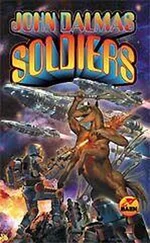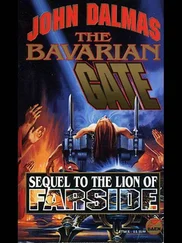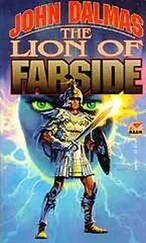John Dalmas - The Yngling
Здесь есть возможность читать онлайн «John Dalmas - The Yngling» весь текст электронной книги совершенно бесплатно (целиком полную версию без сокращений). В некоторых случаях можно слушать аудио, скачать через торрент в формате fb2 и присутствует краткое содержание. Жанр: Фэнтези, на английском языке. Описание произведения, (предисловие) а так же отзывы посетителей доступны на портале библиотеки ЛибКат.
- Название:The Yngling
- Автор:
- Жанр:
- Год:неизвестен
- ISBN:нет данных
- Рейтинг книги:5 / 5. Голосов: 1
-
Избранное:Добавить в избранное
- Отзывы:
-
Ваша оценка:
- 100
- 1
- 2
- 3
- 4
- 5
The Yngling: краткое содержание, описание и аннотация
Предлагаем к чтению аннотацию, описание, краткое содержание или предисловие (зависит от того, что написал сам автор книги «The Yngling»). Если вы не нашли необходимую информацию о книге — напишите в комментариях, мы постараемся отыскать её.
The Yngling — читать онлайн бесплатно полную книгу (весь текст) целиком
Ниже представлен текст книги, разбитый по страницам. Система сохранения места последней прочитанной страницы, позволяет с удобством читать онлайн бесплатно книгу «The Yngling», без необходимости каждый раз заново искать на чём Вы остановились. Поставьте закладку, и сможете в любой момент перейти на страницу, на которой закончили чтение.
Интервал:
Закладка:
"Nils Jarnhann. You were at the ting a year ago when I was banished. When I was a sword apprentice, I struck a warrior and killed him. A great deal has happened to me in that year. I've traveled far and learned a lot."
"I remember. Yes. Some of the Eagle Clan believed we should have decorated a pole with your head and that Axel Stornave favored you because you were of his clan." Arrbuk chuckled. "Actually Kalle Blatann was a bully and braggart, and even in his own clan there were those who thought he had gotten what was overdue to him. Had the law allowed, we might have let you off free." He turned serious then. "What you say about the Polish king is hard to believe, but we have heard things about you. I'll call the council-all that have landed. Isbjorn Hjelteson is here, and the chiefs of several clans as well as group leaders. I'll gather them for the evening meal. But now I want to see who lands with this ship."
Seventy warriors of the Reindeer Clan landed-all that clan had, for it was the smallest of the Svear. Then the ship sculled out past the sandspit, powered by the strong arms of Sea Eagle clansmen. It's sail was hoisted into the offshore wind and it started north for the Glutton fishing village of Jaavham.
Bjorn showed Nils the council circle, then trotted off with his runners to find the members of the war council while Nils gathered twigs and piled them carefully among the ashes and char of the fire site.
19.
The long double file of neovikings was not very impressive as they rode down the dusty road. They numbered twenty-two hundred warriors and four hundred freeholders-filthy, shirtless, and riding bareback on nondescript workhorses that Casimir's officers had commandeered from the farms of northwestern Poland. Now they were entering the northern Ukraine. Kazi's army had advanced far during the summer, and the northmen moved with scouts ahead and on both flanks. One of the lead scouts galloped back into sight and fell in beside Bjorn Arrbuk and Nils.
"We've run into some knights," he reported laconically. "Our Pole thinks they're Magyars because he can't understand anything they say."
The few northmen besides Nils and Sten Vannaren who knew appreciable Anglic had been assigned to scout groups. And Casimir had early assigned several knights-men who knew some Danish-to the neoviking army to serve as contacts and interpreters.
Nils and Bjorn dug bare heels into their horses' sides and galloped heavily up the road. In less than two kilometers they caught the lead scouts, with their Pole and five Magyar knights. The Magyars were in bad shape, three of them bandaged and all five tired and demoralized. They were remnants of a group that had ambushed a large force of horse barbarians. Badly outnumbered to begin with, they had planned to strike and then ride to cover in the forest, leaving part of their number among the trees as archers to give them cover when they disengaged. This had been more or less effective before. But the horse barbarians had been bait, and when the Magyars had ridden out in attack, their archers had been surprised from behind by a company of orcs. The whole party had been caught between the two enemy forces.
"There were three hundred of us, nearly," their officer added, "and as far as I know, we're all that's left." The man stopped talking for a few seconds, his haggard face working. "And I doubt we killed fifty in the fight."
Nils sensed that these men no longer had hope of victory or even survival; they hoped only to sell their lives dearly. This time they had failed even that.
"You're the first Magyars we've come to," Nils said. "How many of you are left?"
"I don't know. I only know our losses have been heavy. But we don't operate as an army. At the beginning we separated into ten squadrons of three to five hundred each. We've done some regrouping since, as chance allowed, to bring the strength of the squadrons back up to that. Probably more than half of us lie dead, and Janos one of them."
"What of the other armies-the Ukrainians and Poles and Germans?"
"I've seen them several times but never talked to any. I speak no Anglic. But those who do say they've lost heavily, too, especially the Ukrainians, who were in it from the beginning." The man stopped again, looking like he might have cried had there been any tears in him. "We've probably lost more than the enemy, and we were a lot fewer to begin with.
"But I'll tell you this. After what I've seen, if I could get out of this safe, I wouldn't do it. I want to die with my teeth in a throat."
At midday, when the column stopped to water and rest their horses, a grim Magyar was assigned to each scouting group. That night they camped in a forest and stayed there the next day while scouts on their best horses searched the country ahead, where large prairies were interspersed with forests and woods. In the late afternoon they returned to report a large encampment of horse barbarians.
Bjorn Arrbuk gathered several groups, a total of three hundred warriors, and rode quietly out in the gathering dusk. After a time they saw enemy fires in the distance; clearly the enemy was not afraid of attack. Hooding their horses they lay down to rest.
Gradually the distant fires burned down and most of the warriors slipped out into the prairie on foot, disappearing into the darkness. The men who stayed behind with the horses watched and listened intently. Once they heard a mounted patrol pass at some distance in the darkness, and then it was quiet again.
Suddenly there were distant brassy blasts from foreign war horns, and fires blazed up. They pulled the hoods from their own mounts and sprang onto their bare backs, ready, nervous to know what was happening. In a few minutes they could hear the thunder of approaching hooves, the hooting of neoviking war horns, and then shouts in their own language. A herd of horses galloped past, driven by whooping northmen, and they rode in among them individually, changing mounts in the tumult.
When morning came to the neoviking camp, the group leaders counted their men. All but twenty-one had returned, straggling in on fine horses and driving others, blood on their swords and grins on their faces. They could not say how many they'd killed, but they thought a hundred at least, and they'd scattered a large part of the horses that they had not been able to steal. Once mounted, they had cut a spiral swath through the enemy camp before fleeing, and they all agreed it had been worth the long trip from the homeland.
Bjorn Arrbuk sent out two of his Poles and two Magyars to hunt for others of their own forces and spread word of the victory. Meanwhile scouts were dispatched again, much better mounted now, if still bareback, to get a better understanding of the country and the location of enemy camps. Groups not chosen for the first raid were impatient for action.
Another large encampment of horse barbarians was reported about twenty kilometers away. A few kilometers from it was a dense wood of several score hectares, forming a small island in the prairie. Bjorn Arrbuk called a council.
"Nils Jarnhann tells me we may be able to surprise horse barbarians but never the orcs, because the orcs have mind readers like himself who could sense our coming. If we want to kill orcs, the best thing is to have them come to us at a place of our own choosing. If we surprise the barbarian camp in the dark and then take cover in the woods nearby, they can surround us. They can attack us there if they want, but their horses will only be a hindrance to them in the timber and we can butcher to our hearts' content. Nils thinks they will send for orcs, though, to root us out on foot, and we can find out just what these orcs are made of.
"There's a spring in the woods for water, and it's less than three kilometers from a large stretch of forest, so that we can sneak out and escape by night when we want to.
Читать дальшеИнтервал:
Закладка:
Похожие книги на «The Yngling»
Представляем Вашему вниманию похожие книги на «The Yngling» списком для выбора. Мы отобрали схожую по названию и смыслу литературу в надежде предоставить читателям больше вариантов отыскать новые, интересные, ещё непрочитанные произведения.
Обсуждение, отзывы о книге «The Yngling» и просто собственные мнения читателей. Оставьте ваши комментарии, напишите, что Вы думаете о произведении, его смысле или главных героях. Укажите что конкретно понравилось, а что нет, и почему Вы так считаете.








